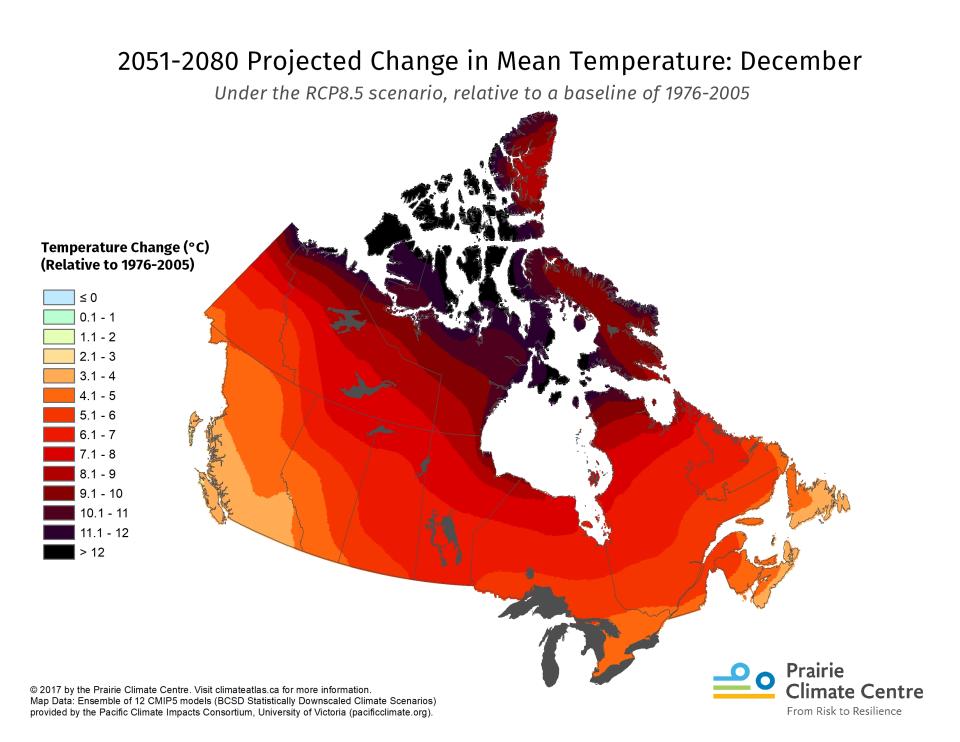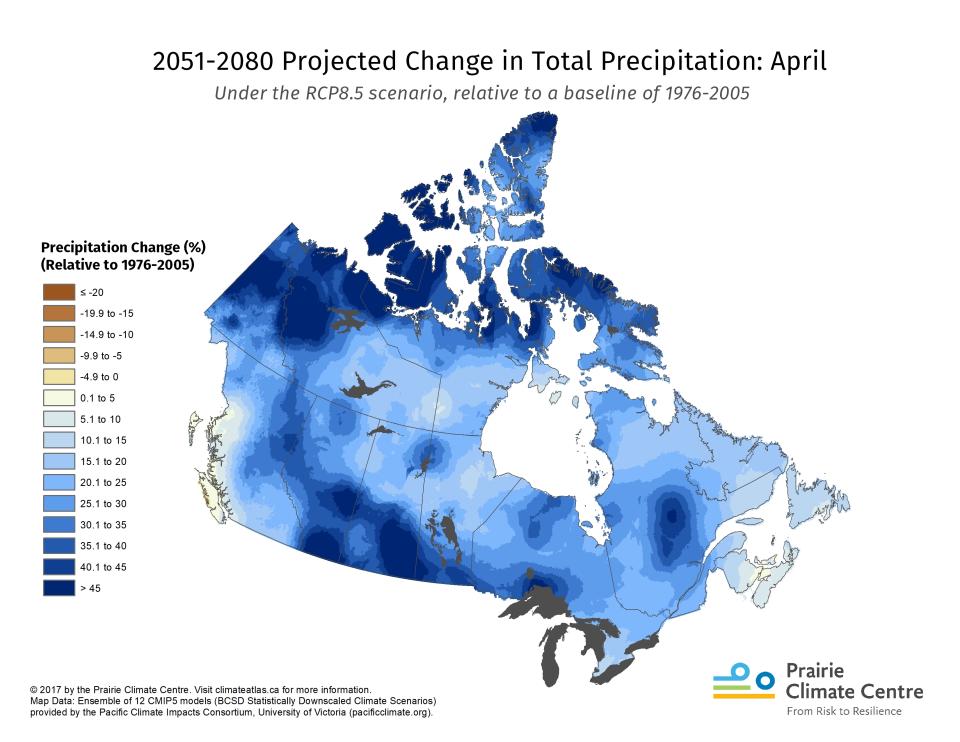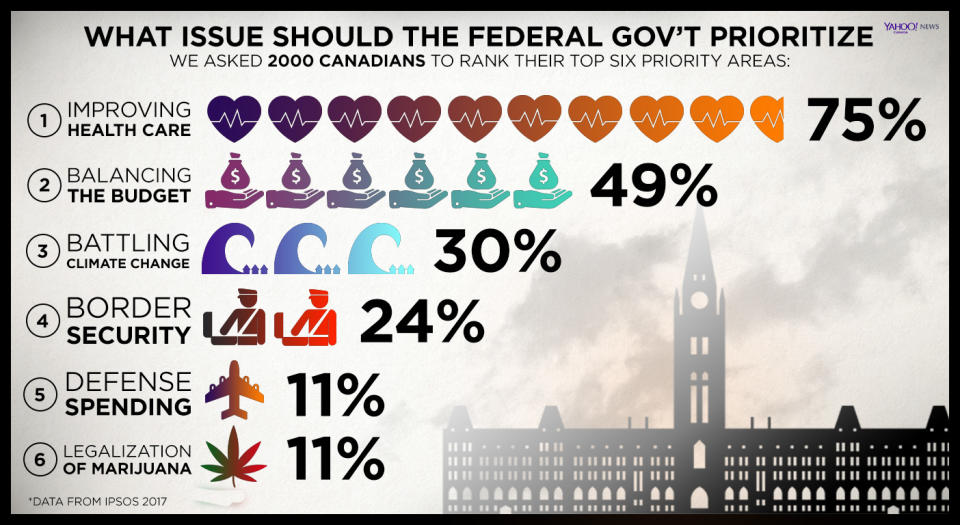Canada's winters are set to change dramatically in the future: experts
Climate change is going to drastically alter Canada’s weather patterns regardless of how quickly global carbon emissions are cut, according to new climatology maps published by the Prairie Climate Centre.
The Climate Centre’s models show two possible outcomes, one depicting a low carbon scenario, where the international community immediately takes steps to tackle climate change, and a high carbon scenario, which is currently the path the planet is currently on. The centre based its projections off seeing how closely historical projections mirrored the climate records that were eventually recorded.
Climate change means most Canadians will experience significantly warmer and wetter winters by 2080, and significantly drier and hotter summers. While some may welcome a warmer climate, the drastic temperature increase will be damaging to Canada’s ecosystems and will be felt even in its big cities. And it won’t warm up significantly enough to keep snowbirds from making their annual migration to Florida and the Caribbean.

The Arctic, in particular, will warm up at a faster rate than the rest of Canada. “If you remove snow and sea ice, you get sunlight, instead of bouncing back into space, sticking around and continuing to warm the climate,” says Ryan Smith, a climate change researcher at the Prairie Climate Centre.
But it will still be unbelievably cold there. “It’s -50 in the Arctic in the winter, so 12 degrees warmer is still around -35. It’s still quite cold, just quite a bit less cold than it would be otherwise,” he says.
Major cities like Toronto, Montreal, Ottawa, Calgary and Edmonton could be looking at a Christmas season 4-6 degrees Celsius warmer than today.

When it comes to the colder seasons that dominate Canada’s climate, southern Canada is expected to receive higher levels of precipitation during the fall, winter and spring which means there will be repeats of the floods hit that Ontario and Quebec this year.
But come summer, major forest fires look like they will be an annual event in western Canada. High carbon modelling shows that most of B.C. will experience drops in precipitation of at least five per cent during August. The southern third of the province is looking at a drop of more than 20 per cent. Southern Alberta also faces the same dry future. The dryness won’t be as noticeable in the rest of the provinces, although many still face drops in precipitation of up to 10 per cent.

“It doesn’t take a rocket scientist to say ‘look, hotter temperatures and way less rain, well that will lead to drier forest conditions, and if a lightning bolt comes around, it will probably be a more intense fire than you would have otherwise,'” he says. As with other climatologists, Smith says extreme weather events have happened in the past. The difference is the intensity and frequency of those events, like this summer’s wildfires in B.C.
Some progress has been made in helping reduce carbon emissions. B.C. is already one of the greenest provinces in the country, charging $30 per tonne of carbon emitted, compared to $19.40 per tonne in Quebec and Ontario, and $20 per tonne in Alberta. The rest of the country is expected to follow suit by 2018, according to guidelines set by the federal government.
But a lot of work remains. While provinces like B.C. are very environmentally conscious, and climate change is largely seen as an indisputable fact, not all Canadians, particularly in energy-producing provinces, believe in it. “People just don’t even believe climate change is real, let alone understand what it means for them and their livelihoods,” says Smith. “But no matter where you live though, there’s a lot of work to do to educate the public.”
An Ipsos poll commissioned by Yahoo Canada News in advance of Canada’s 150th birthday echoed the lukewarm sentiment citizens have towards climate change. When 2000 people across the country were asked to rank their priorities for the federal government, less than half chose battling climate change as a top issue.

Even more critical than placing battling climate change through carbon caps is preparing for the future. “The conversation has been a lot about how do we stop climate change,” says Smith. “But equally important is accepting the fact that a certain amount of climate change is all but guaranteed and starting to plan for that.”



